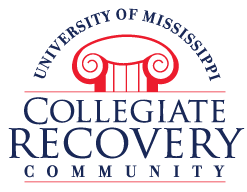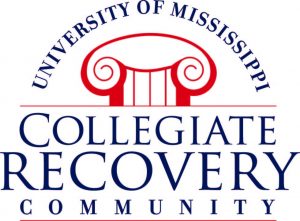- Education Topics
- Achievement Gap
- Alternative Education
- American Education Awards
- Assessment & Evaluation
- Education during COVID-19
- Education Economics
- Education Environment
- Education in the United States during COVID-19
- Education Issues
- Education Policy
- Education Psychology
- Education Scandals and Controversies
- Education Reform
- Education Theory
- Education Worldwide
- Educational Leadership
- Educational Philosophy
- Educational Research
- Educational Technology
- Federal Education Legislation
- Higher Education Worldwide
- Homeless Education
- Homeschooling in the United States
- Migrant Education
- Neglected/Deliquent Students
- Pedagogy
- Sociology of Education
- Special Needs
- National Directories
- After School Programs
- Alternative Schools
- The Arts
- At-Risk Students
- Camps
- Camp Services
- Colleges & Universities
- Counties
- Driving Schools
- Educational Businesses
- Financial Aid
- Higher Education
- International Programs
- Jewish Community Centers
- K-12 Schools
- Language Studies
- Libraries
- Organizations
- Preschools
- Professional Development
- Prom Services
- School Assemblies
- School Districts
- School Field Trips
- School Health
- School Supplies
- School Travel
- School Vendors
- Schools Worldwide
- Special Education
- Special Needs
- Study Abroad
- Teaching Abroad
- Volunteer Programs
- Youth Sports
- For Schools
- Academic Standards
- Assembly Programs
- Blue Ribbon Schools Program
- Educational Accreditation
- Educational Television Channels
- Education in the United States
- History of Education in the United States
- Reading Education in the U.S.
- School Grades
- School Meal Programs
- School Types
- School Uniforms
- Special Education in the United States
- Systems of Formal Education
- U.S. Education Legislation
- For Teachers
- Academic Dishonesty
- Childcare State Licensing Requirements
- Classroom Management
- Education Subjects
- Educational Practices
- Interdisciplinary Teaching
- Job and Interview Tips
- Lesson Plans | Grades
- Professional Development
- State Curriculum Standards
- Substitute Teaching
- Teacher Salary
- Teacher Training Programs
- Teaching Methods
- Training and Certification
- For Students
- Academic Competitions
- Admissions Testing
- At-Risk Students
- Career Planning
- College Admissions
- Drivers License
- Educational Programs
- Educational Television
- High School Dropouts
- Higher Education
- School Health
- Senior Proms
- Sex Education
- Standardized Testing
- Student Financial Aid
- Student Television Stations
- Summer Learning Loss
The University of Mississippi

Basic Information
Program Name: Collegiate Recovery Community
Phone Number: 6629155782
Email: dejag@olemiss.edu
Program Contact: Deja Green
Additional Information
Established: September 2012
Professional Affiliations: ARHE
Setting:
Student-lead organization on the UM campus.
Community:
undergraduate, master’s, or doctoral student
CRP Criteria:
Join the Collegiate Recovery Community
Join the Collegiate Recovery Community
Become a Member of the Collegiate Recovery Community
Membership Requirements:
- Enrolled in at least three credit hours as an undergraduate, master’s, or doctoral student
- Participate in daily meeting offerings, community service projects, and wellness opportunities
- Have an open mind about the recovery journey
Residential: No
Counseling Services: No
Disability Services:
Available through the Office of Disability on campus.
Treatment Services: Counseling is provided through The University of Mississippi Counseling Services. No treatment program available on campus.
Mission Statement:
The William Magee Center for AOD & Wellness Education is dedicated to transforming students’ lives by providing education, intervention, and support services to enhance well-being and foster success at the University of Mississippi. We host programming and offer services related to holistic well-being, substance use and harm reduction, disordered eating, and body positivity. Our goal is to create a culture of well-being at the University of Mississippi by improving access to campus resources and supporting students on their journey to holistic wellness.
Philosophy/Belief Statement:
The Collegiate Recovery Community (CRC) at the University of Mississippi provides a nurturing, affirming environment in which students recovering from substance use disorder can pursue academic goals, elicit social support and engage in opportunities in the Lafayette Oxford University (LOU) community.
Program Goals:
Our goal for the CRC is to provide academic and social support system to help students achieve their academic goals while maintaining long-term recovery. Support is provided by a network of peers, faculty, and staff who understand the unique challenges recovering students face in a collegiate environment.
Programs and Services:
- Campus community: Our members are from all walks of life and are supporters of recovery and the development of skills to successfully navigate academics and recovery.
- Scholarships: Members are eligible to apply for a scholarship after one semester of involvement and commitment to the CRC. The CRC members work hard to garner funds to continue to provide this opportunity for current and future members.
- Guidance: Successfully navigating college can be difficult. Support is provided by a network of peers, faculty, and staff who understand the unique challenges recovering student face in a college environment.
- Volunteer opportunities: Each semester, student members of the CRC are provided with opportunities to participate in community service. The opportunities range from sharing their stories of recovery at nearby treatment facilities, volunteer opportunities on campus and throughout the Oxford community, and assisting with CRC fundraising events
- Events, activities and trips: The CRC works closely with Wellness Education, Campus Recreation, University Counseling Center and others to provide wellness activities and trips for the recovery community at Ole Miss!
Social Media:
(INSTAGRAM) https://www.instagram.com/olemiss_crc/
(FACEBOOK) https://www.facebook.com/um.collegiaterecovery/
(TWITTER) https://twitter.com/um_crc
Program Information:
Staffed by one full-tme person, Deja Green, Intervention Specilist at the William Magee Center for AOD and general wellness and two graduate assistants.





